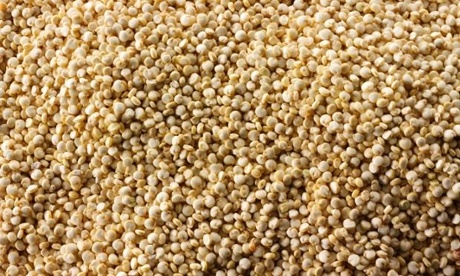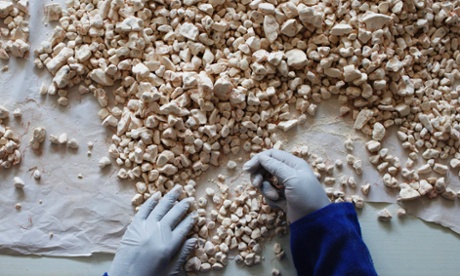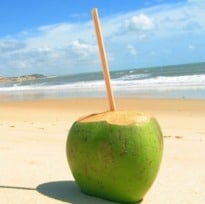The substance that South Asians, Southeast Asians and Islander people have been using for cooking, health and cosmetic purposes since way before Christopher Columbus went the wrong way to visit them has well and truly been Columbused (the term is used to describe white people discovering things that everyone else already knew about.)
Coconut has been used cooking and cosmetics through most of the tropics since forever - the whole plant is miraculous.The water is the best thing to get you through stomach bugs, coconut treacle/sugar is delicious, and the fibres from the husks are used in a variety of building materials.
For anyone out there whose mother slathered their hair in coconut oil and fried everything in coconut oil feeling a little flummoxed by the sudden popularity of the fruit, take heart: you are not alone. This must have been how South Americans felt about quinoa's exploding popularity in recent years.

However, unlike the cultural appropriation of music, dance moves, yoga or tribal headdresses, the effect of certain staple crops becoming best sellers in the global north hits right in the guts.
The impact of the trendiness of quinoa, for example, is now well-known. The appetite of countries such as ours for this grain has pushed up prices to such an extent that poorer people in Peru and Bolivia can no longer afford to eat it. Imported junk food is cheaper. In Lima, quinoa now costs more than chicken. Outside the cities, and fuelled by overseas demand, the pressure is on to turn land that once produced a portfolio of diverse crops into quinoa monoculture.
In fact, the quinoa trade is yet another troubling example of a damaging north-south exchange, with well-intentioned health and ethics-led consumers unwittingly driving poverty on the other side of the world.
Columbusing usually only benefits a certain group. With primary products, as demand soars with the "discovery" of certain crops from less-developed countries, the risk of unscrupulous practices such as land grabbing and labour exploitation rises with it.
The consumption of products like rubber, coffee, spices, and minerals from the colonies were how empires were built. Now, rather than colonial powers, the corporatisation of traditional products that are packaged for wealthy markets is a constant threat.

Take Sri Lanka: concurrently with the increase in global demand for coconut-based products, many coastal areas traditionally used as plantations have become prime real estate sought by developers wanting to build resorts as the post-war tourism goes gangbusters. This seems like a recipe for a food security disaster. Elsewhere, teff from Ethiopia and baobab from Malawi have been touted as the next big things - no doubt coming to a lifestyle blog near you. What will happen when every fashionable yogi on the planet starts their day with teff pancakes and baobab face cream?
There are examples of trade between the north and the south that benefit both, of course, such as Fairtrade coffee and cocoa initiatives. Making this happen requires consumer understanding and pressure on the supply chain. And Fairtrade practices, while admirable, certainly haven't solved all the world's problems with how coffee or cocoa is grown, harvested and sold.
The bottom line isn't so much about inflaming white guilt as it is providing a reminder of the power of the consumer buck. With great power comes the great responsibility of using that power for good. And if you're going to be conscious of the nutritional value of the foods you eat, it is also important to consider the ethical side. Buying products like quinoa, coconut oil or taff isn't necessarily a bad thing if they are sourced from ethical producers and the profits stay with the communities that discovered them in the first place.
Top photo: Coconuts: 'columbused' by the north. Photograph: Alamy
